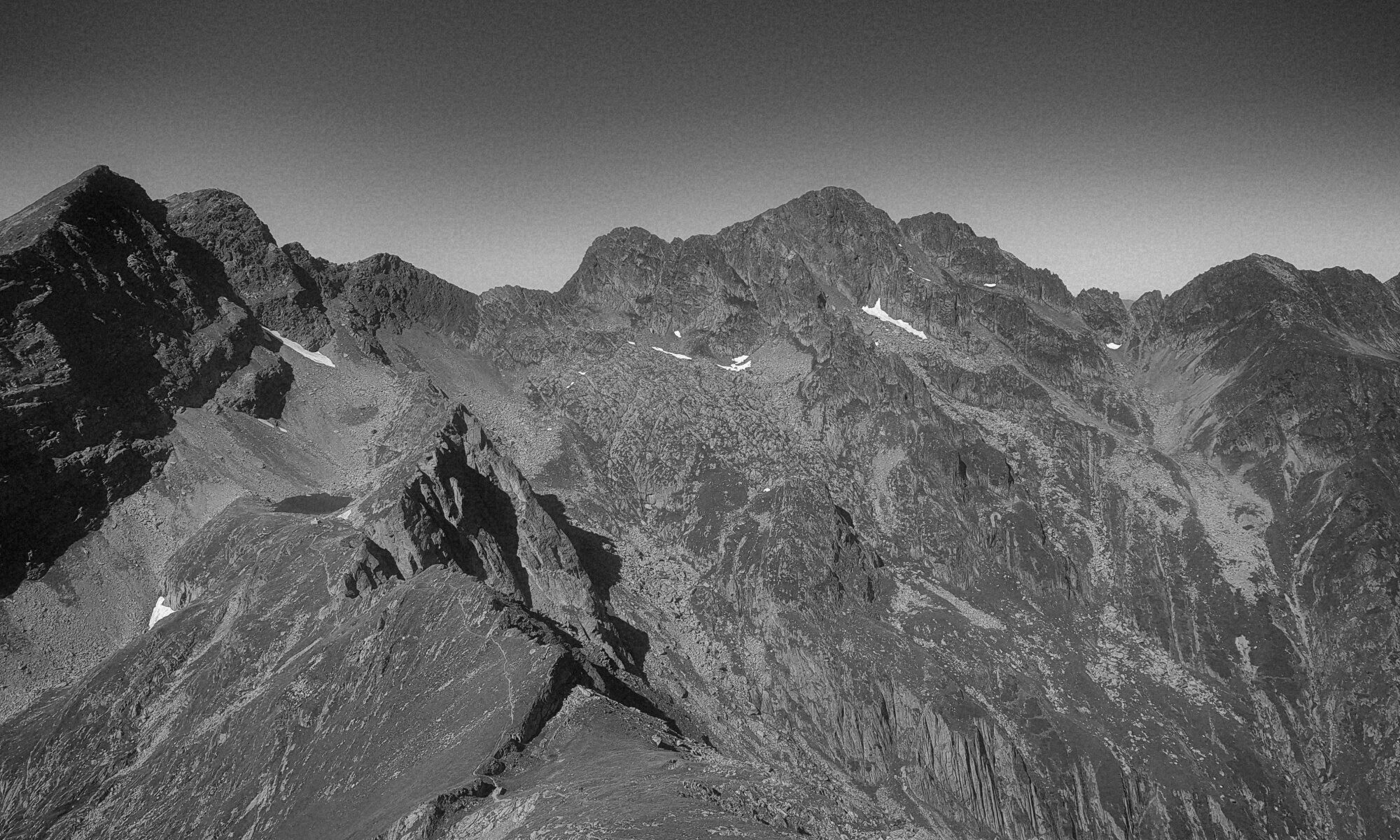THE WINDY MOUNTAINS. Swirling mists roll up to the crests of northern Transylvanian scarps, dark and craggy. But gales from gently sloping green Wallachia thwart their passage over the ridge, sending them whirling down into the devil’s kitchen, whence they came. Mist to the north, grass and craggy slopes to the south, a sharp boundary in their midst. The south-facing hillsides are abrupt too. A fallen bread loaf rolls and bounces wildly hundreds of meters down into the valley below before finding rest on the banks of Lake Valea Rea.
The days above Urlea waterfall: blissful, solitary, stormy – eleven tempests in a single day. Below us, wind, rain, and waves on the lonely waters of cliff-skirted Urlea Lake. Exquisite mountain plants grow wherever sheep cannot reach. All of the eastward lying Făgăraş are uninhabited, after departing Bratilei Saddle, we hardly meet a soul. Endless marching days, up mountains, and down again. Crosses for the lost and frozen stand upon Făgăraş ridges where one had best not venture unequipped. To the west, boisterous foreigners appear in droves. Most of them see no more of Romania’s mountains than the Făgăraş. Their numbers grow thickest at Bâlea Lake near a road that passes beneath the main ridge. Better to stay away from there, little brother! Descend instead to the deserted Carpathian valleys below Podragu Lake, hike through forests long into the night. Drizzle drips lightly among giant beech trees, rain falls upon old fir thickets. Though they emanate safety, finding a flat place to rest among them is nearly impossible. Somewhere far below, wild water thunders, unseen, only heard. You must push on, ever deeper into the valley. Light soil slips underfoot, sliding down steep slopes into muddy forest streams that rush forth from the mountains. Walking along Podragu valley at night without a light is foolhardy. But all the sweeter midnight’s rest on the valley floor, all the sweeter morning’s awakening.
